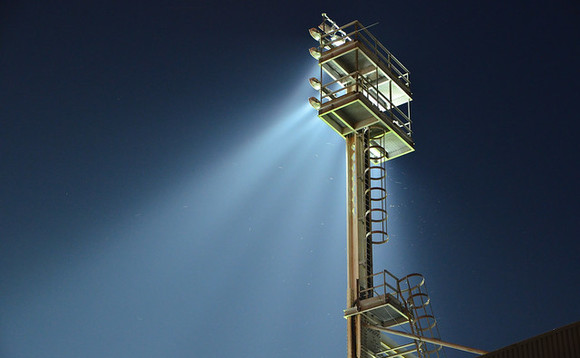
Old electric vehicle batteries retain enough capacity to light up a game
Six European football stadiums are experimenting with deploying used car batteries to power their floodlights.
The battery packs, comprised of used electric car batteries, are being supplied by Eaton, the US-based electrical systems firm. Eaton vice-president Craig McDonnell could not reveal the clubs that were interested, but according to the BBC they are “significant” names.
Eaton’s reused battery packs are already in use in stadiums across Norway and the Netherlands, while a three-megawatt storage system was implemented last year at the Johan Cruyff Arena, home of Amsterdam-based football club Ajax. This system utilises sustainable solar panel power so that it can be used during the day or at night.
Eaton is a key supplier of sources of renewable energy resources and has been investigating uses for electric car batteries which are too depleted for vehicular use, but retain sufficient power for lighting and other steady-state workloads. In 2014, Computing reported on an experimental scheme bu Eaton to use old Nissan Leaf batteries as a power source for data centres and smart grids. Eaton concedes that the market for used car batteries is still “niche” but expects it to grow up to 20 times between now and 2022 and for the EMEA market to be worth $2.3 billion by 2025.
Car-makers BMW, Hyundai, Toyota, Mercedes-Benz and Renault currently use the same technique of reusing old car batteries for domestic and industrial power storage. As the number of electric vehicles grows, getting the most out of the batteries is becoming a major environmental challenge.
According to a report in the Guardian, in November Arsenal FC became the first UK football side to use a large-scale battery system with capacity to last an entire match. Matt Allen, the CEO of Pivot Power, which installed the system, said: “Arsenal is showing how football clubs and other big power users can save money and support the UK’s climate change and clean air targets.”
